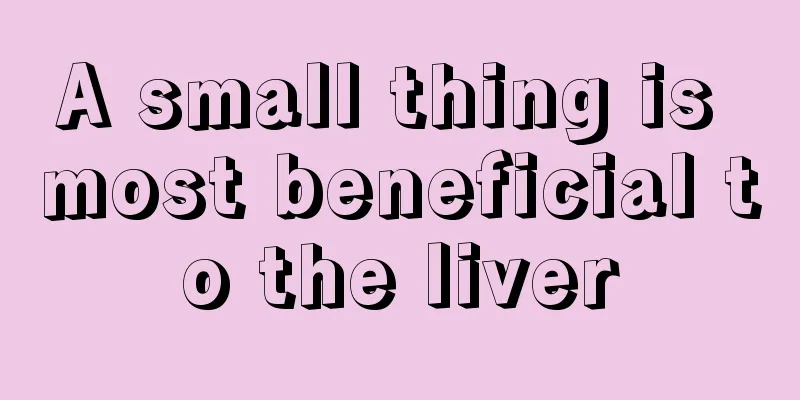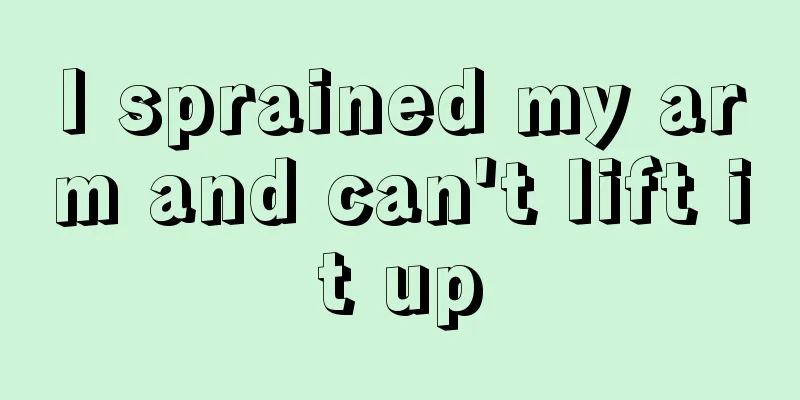What causes hiccups while running

|
Hiccups while running are quite common, but hiccups can indeed cause great discomfort to people. Therefore, after symptoms of hiccups appear, runners must use certain methods to stop the hiccups and relieve this discomfort. There are many ways to stop hiccups. Of course, different methods have different effects on different people. Next, I will introduce to you some relevant knowledge about hiccups while running. 1. First, let’s distinguish between “hiccups” and “belching”? The professional medical name for hiccups is "hiccups". Sometimes when we say hiccups, we also refer to another phenomenon, commonly known as "burping", and its medical name is "belching". The two need to be distinguished: 1. Belching refers to the excess gas in the stomach moving upward and being discharged through the esophagus and throat. The whole process is long and gentle, the air flows slowly, and people can control it to a certain extent. Patients usually have symptoms such as bloating, gastrointestinal hypomotility, and indigestion. 2. Hiccups are also the discharge of gas from the stomach, but due to the rapid and powerful contraction of the diaphragm, this process is extremely short, the airflow passes through quickly, and people cannot control it on their own. Just like when we were kids playing with firecrackers, if we broke the firecrackers apart, poured out the gunpowder inside and lit them, we would only hear a hissing sound of burning, which is like belching; if we directly lit the fuse of the complete firecracker, we would hear a bang, which is like hiccups. 2. Why do you hiccup occasionally when running or doing other exercises? Hiccups are the body's protective response. Between the chest cavity and the abdominal cavity, there is a thick muscle membrane like a hat, called the diaphragm, which separates the chest cavity and the abdominal cavity. Like other organs in the body, the diaphragm has a nerve supply and blood supply. Once the diaphragm is stimulated, the nerves will transmit the stimulation to the brain, and the brain will issue instructions to cause the diaphragm to have paroxysmal and spasmodic contractions, resulting in hiccups. Most of this stimulation comes from the pressure of the distended stomach. The cause of hiccups during exercise is a bit complicated, and its mechanism is not fully understood at present, but one thing is certain that some hiccups are caused by nerve reflexes. The nerves that control hiccups are distributed from the brain to our heart, lungs, liver, spleen, and kidneys. Therefore, if any of these organs gets angry, it may cause hiccups, such as catching a cold from breathing cold air. 3. If you have hiccups while running, you can try these methods 1. Bend over to drink water. When you have hiccups, drink a few sips of warm water, swallow it slowly, and bend over 90 degrees 10 to 15 times. Because the stomach is closer to the diaphragm, it can warm the diaphragm from the inside. When you bend over, your internal organs will also massage the diaphragm, relieving diaphragm spasms and achieving the purpose of stopping hiccups. 2. Hold your breath after inhaling. Take a deep breath, hold your breath quickly and then exhale slowly. This method can be used repeatedly and is mostly used for those caused by mental stimulation and eating too fast. 3. Press both eyeballs. Close your eyes, place your thumbs on both eyeballs, and rub the upper part of the eyeballs in a clockwise direction until the hiccups stop. 4. Water breath-hold method. Take a cup of cold boiled water, take a big sip of the water, then hold your breath and stop breathing. Try to extend the time as long as you can. When you can no longer bear it, swallow the water into your stomach. Be careful not to choke on the trachea. This method can be used repeatedly, but is contraindicated for people with heart or brain diseases. 5. The shock method. You can suddenly jump in front of the person who is hiccuping and yell, or pat him on the back when he is not paying attention. According to the principle of hiccups, hiccups can be stopped by simply interrupting the phrenic nerve reflex. As a strong emotional stimulus, fright can be transmitted through the cortex to the subcutaneous center, inhibiting diaphragm spasm. However, patients with hypertension and heart disease should use this method with caution. |
Recommend
What are the typical symptoms of nasopharyngeal carcinoma?
What are the typical symptoms of nasopharyngeal c...
Can I have a physical examination during menstruation?
When going through the entry procedures, many com...
TCM's understanding of lymphoma
Traditional Chinese medicine has a short history ...
How to remove oil stains on down jackets
Many friends need to know how to remove oil stain...
What kind of fruit is good to eat when you often stay up late?
People who often stay up late need nutritional su...
These 7 physical characteristics can tell whether you have a longevity profile
1. Eyebrows and longevity Eyebrows are called the...
Can the presence of gallbladder cancer be confirmed by testing carcinoembryonic antigen?
Can carcinoembryonic antigen detect gallbladder c...
What are the nutritional values and taboos of turtledoves
The nutritional content of turtledove is relative...
How to prevent liver cancer in daily life? Eating this kind of food often can easily induce liver cancer
The liver is a very important organ in our body a...
How to use a diaper pad
Taking care of a baby is not an easy task, becaus...
Diet at different stages of endometrial cancer
We all know that any disease will cause certain h...
What factors are likely to induce lung cancer? To prevent lung cancer, beware of the three major risk factors
Among various cancers, everyone knows that lung c...
What are the causes of rectal cancer
Rectal cancer is one of the most common malignant...
How to care for patients with rectal cancer in the late stage
In the nursing measures for patients with advance...
Ranking of hospitals treating pancreatic cancer
The treatment of pancreatic cancer has always bee...









